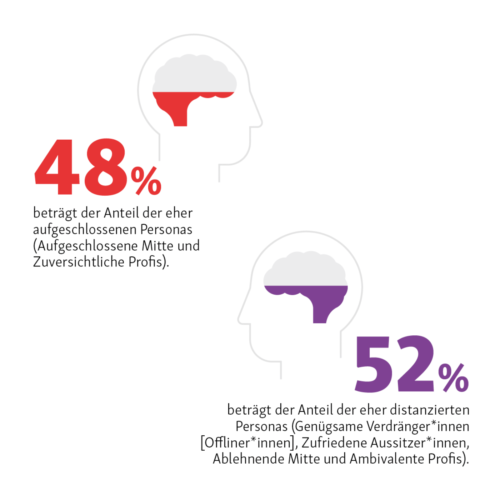eGovernment MONITOR 2023 – New English version allows international exchange of knowledge
The eGovernment MONITOR is a representative study that assesses the success and reach of digital transformation in administrative services for citizens in Germany, Austria, and Switzerland. For the first time ever, we now publish an English translation.
We are happy to share our inaugural English version of the eGovernment MONITOR with you. The eGovernment MONITOR is a representative study by the Initiative D21 e. V. and the Technical University of Munich that assesses the success and reach of digital transformation in administrative services for citizens in Germany, Austria, and Switzerland. Published annually since 2010, it supports decision-makers in measuring progress and identifying areas for improvement. This knowledge can be utilized to take well-aimed measures to improve digital administrative services. For the first time ever, we publish a translated version of our study to ensure that our findings and insights reach a broader and international audience, fostering a more inclusive and diverse exchange of knowledge.
The results show: The digital transformation of the administration is progressing in many areas, but too little of it is still reaching the people in the country. The use of digital administrative services continues to increase, but only slowly. The administration is therefore less and less able to keep up with citizens' expectations. This is also due to the fact that leverage projects such as digital identities have not been able to achieve the necessary success.
The challenges of digital administration are many and varied, but they are also surmountable. With the eGovernment MONITOR, we provide decisionmakers in politics and administration with a powerful tool for identifying the need for action and deriving targeted measures. One important message of the study: The majority of citizens are still open and believe in the benefits of digital administrative services. So the determination is there on all sides: it is a matter of achieving measurable success and impact.

The eGovernment MONITOR reveals that there's still a lot of work to be done. At the same time, it shows how much progress has already been made. That is good news: when progress is noticeable, the public’s confidence in the state also increases. Digitalizing the administration is a matter close to my heart, and we are working at full speed to address many of the challenges I’ve noted. I, therefore, look to the future with confidence and see the results as an incentive to continue driving digitalization forward with full commitment.
Overview: Key Findings
- Desire and reality: 71 % of Germans believe in the added value of e-government – but 42 % are not satisfied with the current services.
- Functioning, digital administrative services as an important instrument of democracy: Trust in the efficiency of the state and administration has declined.
- The majority of citizens would agree to the use of AI in administration – if fundamental decisions continue to be made by humans.
- Hardly any progress with digital identification: Only 14 % of Germans use the online ID card. Biggest barrier: Citizens do not see the benefits for themselves, they lack applications.
- Digital usage gap of 35 %: More than one in three people still meet their need for administrative services in analogue form.
Contact persons
We would be happy to engage with stakeholders outside of German-speaking political and research contexts and build upon the study's findings. Please feel free to share and do not hesitate to send us any feedback on our publication.



